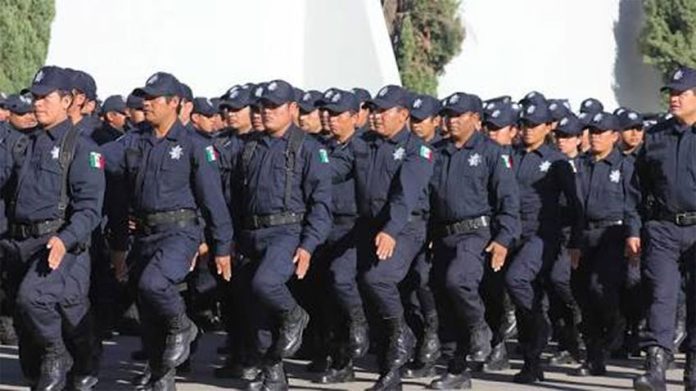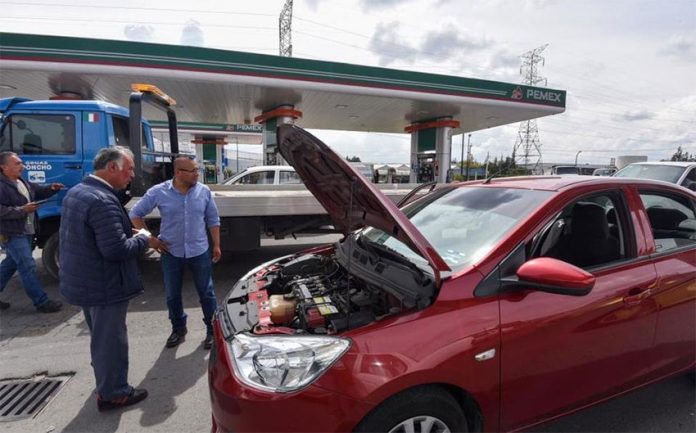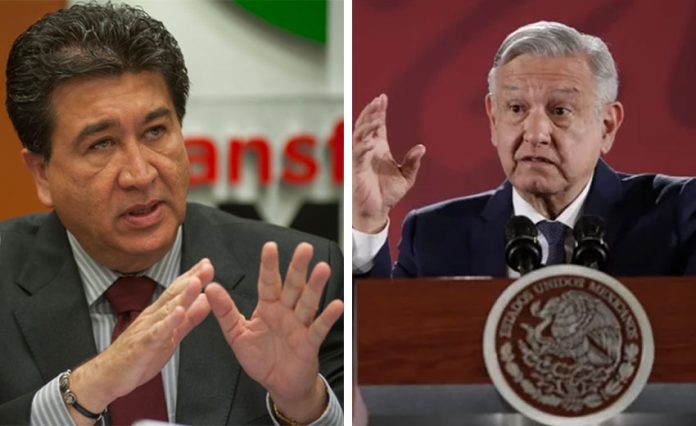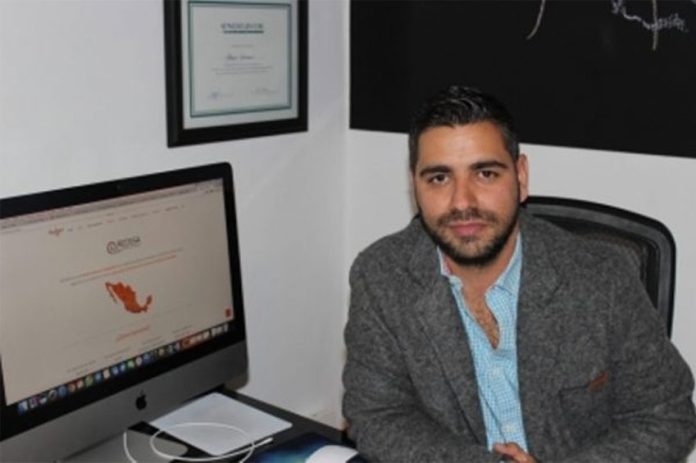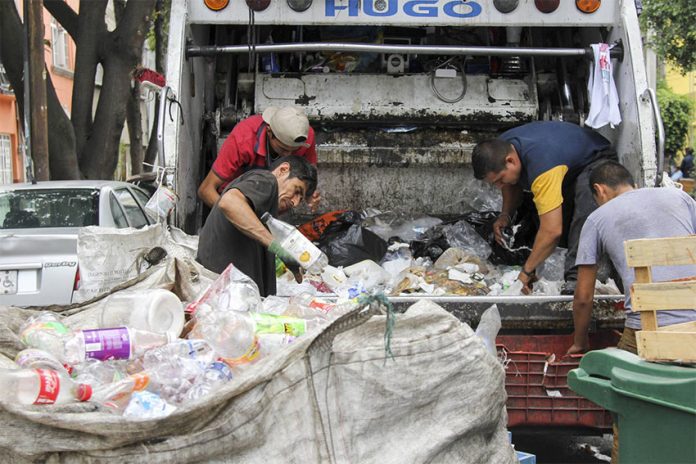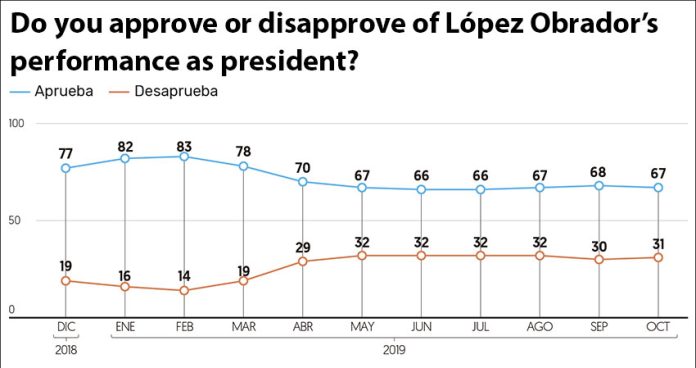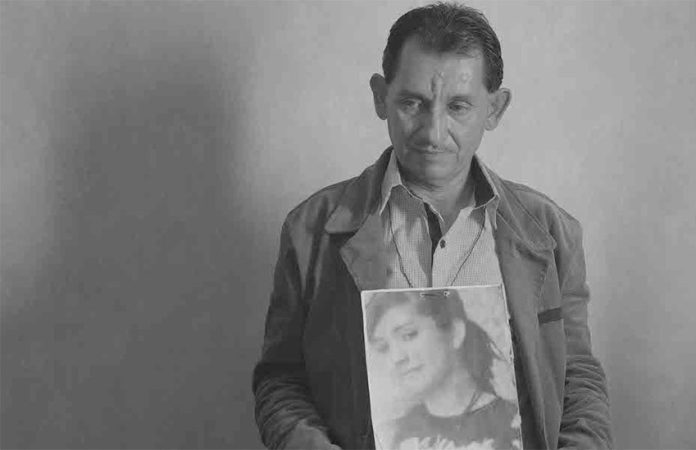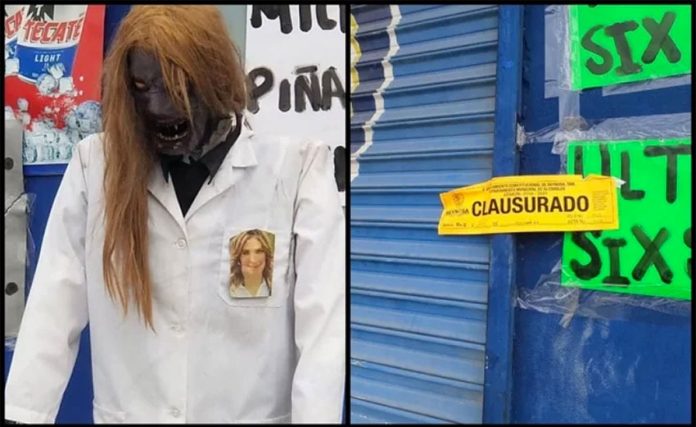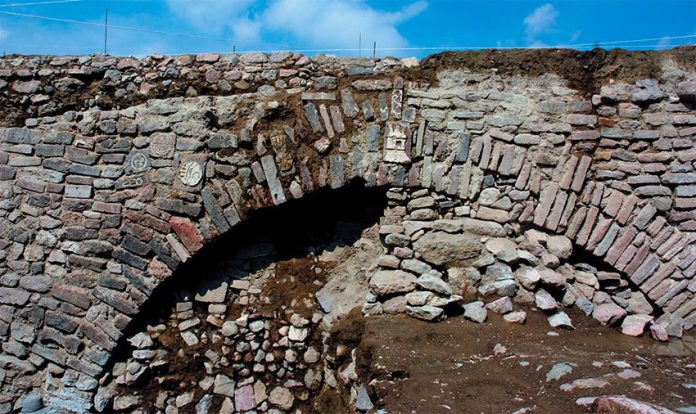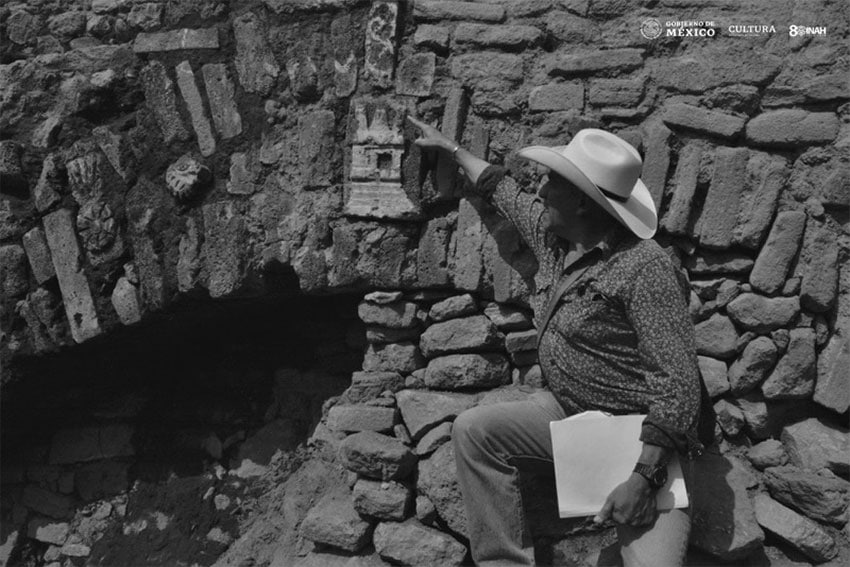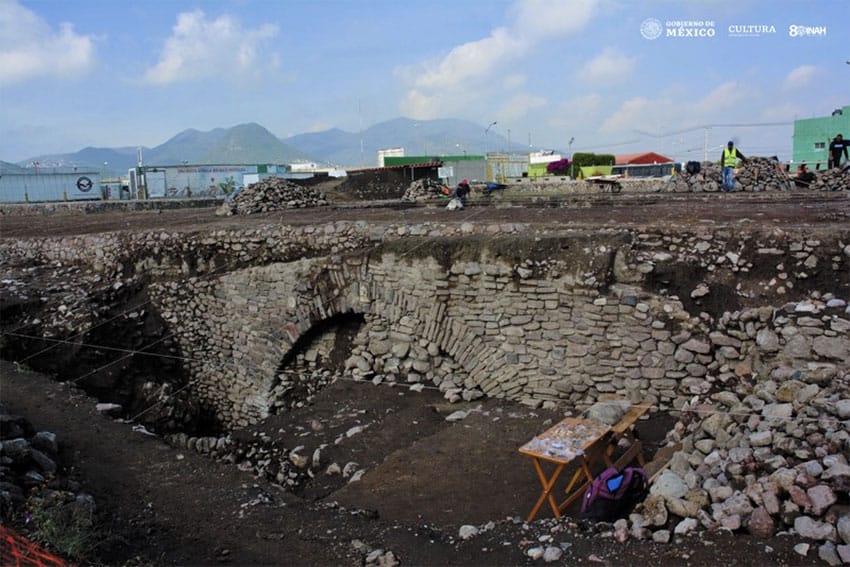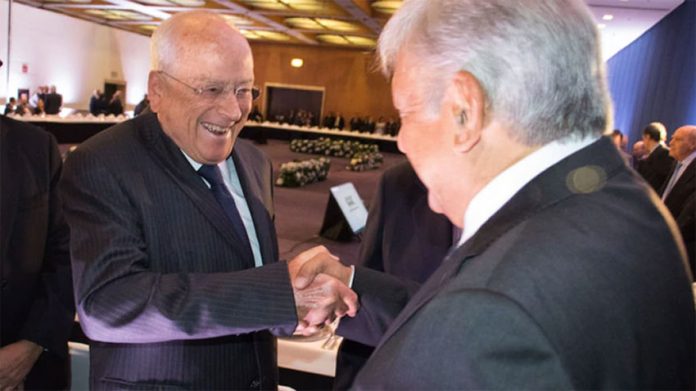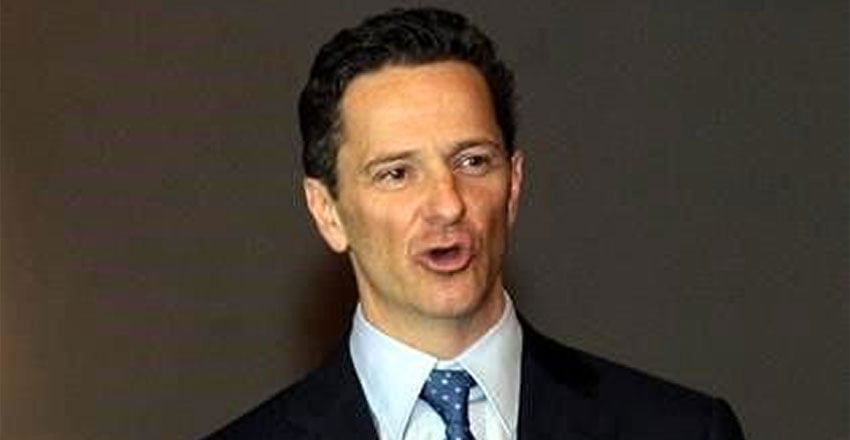President López Obrador achieved an approval rating of 67% in a new poll even though a slight majority of respondents said it was a mistake to release Joaquín “El Chapo” Guzmán’s son after he was captured in Culiacán, Sinaloa, last week.
Conducted by the newspaper El Financiero, the poll shows that the president’s approval rating declined by just 1% compared to September.
In turn, the percentage of respondents who disapprove of López Obrador’s performance as president increased one point to 31%.
The highest approval rating the president has achieved in the monthly El Financiero poll since he took office last December was 83% in February. Since May, López Obrador’s approval rating has held steady between 66% and 68%.
Half of the 820 respondents were polled after the arrest last Thursday of suspected Sinaloa Cartel leader Ovidio Guzmán López. The capture of the alleged narco, who is wanted in the United States on drug trafficking charges, triggered a wave of cartel attacks across Culiacán that left 14 people dead.
(The death toll was believed to be eight until Tuesday, when security officials released new information. Four of the dead were innocent bystanders, the remainder were identified as cartel gunmen.)
Nine in 10 people polled said they had heard about the violence in the Sinaloa capital and 51% said the decision taken by the security cabinet to release Guzmán was wrong.
In contrast, 39% of respondents said that freeing the 28-year-old son of “El Chapo” was the right thing to do. One in 10 of those polled said that they didn’t know whether the decision was right or wrong.
Security Secretary Alfonso Durazo said the security cabinet gave the order to release Guzmán “to try to avoid more violence in the area and preserve the lives of our personnel and recover calm in the city.”
López Obrador said on Friday that he supported the decision because “the capture of a criminal cannot be worth more than people’s lives.”
However, the release of Guzmán shortly after he was arrested – and the Sinaloa Cartel’s takeover of Culiacán with an unprecedented show of strength – is widely considered to be a major embarrassment for the federal government.
A majority of the poll respondents offered a similar opinion.
Asked who the winner was in Culiacán, 56% of the 410 people polled last Friday and Saturday said organized crime.
A quarter of respondents said that society was the winner, 8% claimed that the government came out on top, 6% responded that there were no winners and 5% told El Financiero that they didn’t know who won.
Six in 10 people said the government should actively fight organized crime groups, while 35% said that the aim should be to avoid violence.
López Obrador is betting on the latter strategy, reiterating on Monday that “we will never choose war, confrontation or the use of force.”
While the president’s approval rating barely moved in the latest survey compared to September, he took a bigger hit in the assessment of his personal qualities.
In September, López Obrador was rated “very well” or “well” for his honesty, leadership and capacity to achieve results by 63%, 60% and 48% of those polled, respectively. This month, however, those figures fell to 61%, 54% and 43%, respectively.
Poll respondents were also once again asked to rate the president’s performance using baseball terminology in recognition of the fact that the sport is López Obrador’s favorite.
Just 14% of those polled said that the president’s performance over the past month was equivalent to a home run, while 30% said he had scored a hit. The combined home run/hit figure of 44% is the lowest recorded this year.
Three in 10 people said that López Obrador had struck out – the 30% figure is the highest this year – and another 13% likened his performance to hitting a foul.
Certain aspects of the government’s performance were also assessed more harshly this month than in September.
Only 32% of those polled viewed the government’s performance in public security matters favorably compared to 45% last month. The unfavorable perception of the López Obrador administration’s performance in the area increased from 34% to 47%.
El Financiero said the changes in the figures are “very likely” reflective of the government’s botched operation in Culiacán.
The strategy to reduce poverty in Mexico was also viewed less favorably in October than in September as was the National Guard. Asked to offer an opinion about the new security force, 65% of respondents said they viewed it favorably and 18% said that they viewed it unfavorably. The former cohort declined by 2% and the latter increased by the same figure.
In contrast, the government was assessed more positively this month than in September for its performance in managing the economy. Four in 10 people rated the government’s performance in the area as favorable, a 5% increase compared to last month. The improved assessment came despite forecasts that the economy will only grow minimally in 2019.
The government also fared better in the areas of education and health, while the poll results send a mixed message about its efforts to combat corruption.
The percentage of respondents who looked favorably on the government’s performance in the area increased two points to 33% but the number of people who said that it was unfavorable also increased, jumping three points to 49%.
Source: El Financiero (sp)
